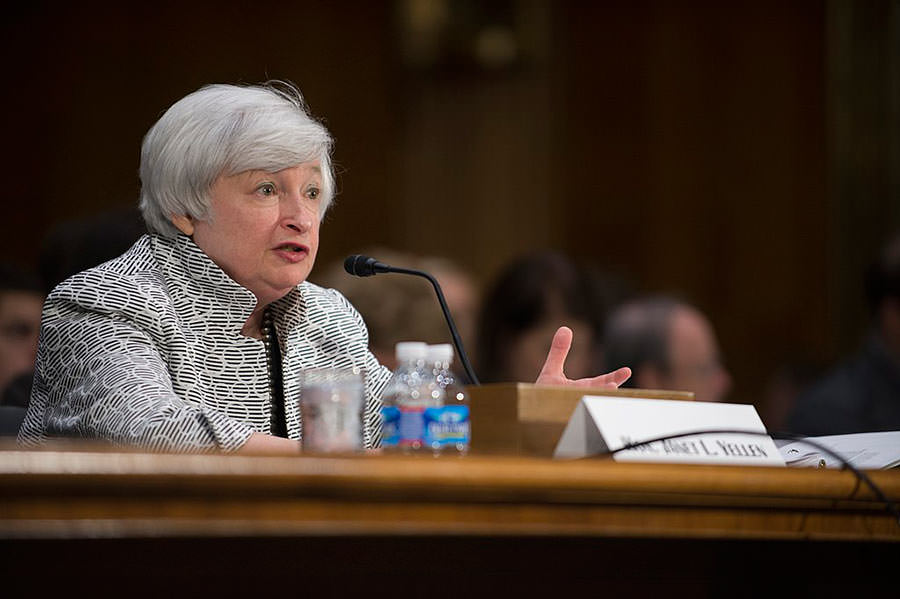Late in 2008, as the financial crisis was unfolding, the Federal Reserve decided that it was necessary to take drastic steps to stabilize the country’s financial system. To do so, the Fed started buying up mortgage-backed securities (MBS) in vast quantities.
In case you’re unaware, an MBS is a security backed by a homeowner’s or business owner’s mortgage. This gives smaller banks and other lenders the ability to offer mortgages, without having the liability of those loans on their books. Essentially, mortgage-backed securities allow lenders to act as middlemen between those who take out mortgages, and the investors who buy up the securities. Some of these investors were massive entities, like Lehman Brothers.

As failed mortgages weighed down the books of MBS investors, the Fed knew that these securities threatened the market’s financial stability.
The Fed responded to the issue by buying up these tainted assets, taking them off the hands of investors and putting them on the country’s credit card, essentially, in a process called “quantitative easing.” The Federal Reserve remained committed to this policy for six years, which kept interest rates at record-breaking lows and allowed the economy to crawl back out of the grave.
By 2014, the Fed had bought up a total of $1.8 trillion in mortgage-backed securities, while holding $2.8 billion in Treasury securities. With its balance sheet having swelled to nearly $4.5 trillion dollars—the Fed finally announced that it was ending the program in October 2014.
But while the Fed ended quantitative easing, it kept the securities on its books, and there was little sign that the Fed would move to reduce its liability in the near future. The Fed was in part inclined to keep the securities on their books due to an event known as the Taper Tantrum; when the Fed announced in May 2013 that it was tapering back on quantitative easing, investors panicked and fled the bond market.
Thus, the Fed maintained the status quo. But this year the Fed has been coming under increasing pressure to address the issue. In March of 2017, Federal Reserve officials began backing a plan for reducing the Fed’s MBS holdings by the end of the year, while slowly increasing interest rates.
But now the Federal Reserve is officially in the process of unwinding its MBS-inflated balance sheet.
On September 20, 2017, Federal Reserve Chair Janet Yellen announced that starting in October, the Fed would allow $4 billion in mortgage-backed securities and $6 billion in Treasury securities to mature each month. Over time, this would ramp up to $20 billion in MBSes and $30 billion in Treasury securities.
While some are nervous that the Fed’s actions could destabilize the financial markets and send ripples through the entire U.S. economy, the Fed is expressing confidence that the country will see 2.4% growth by the end of the year, and with unemployment to fall to 4.1%.
What should property investors expect over the next few months as the Fed reduces its MBS holdings?
While the Fed opted not to raise interest rates from the current range of 1 to 1.25%, it has indicated that its bullish outlook on the economy will warrant a rate increase by the end of the year, with three more increases through 2018. By the end of 2018, Fed officials expect interest rates to be above 2%.
It’s understandable to be somewhat leery of market instability as the Fed unwinds its balance sheet and raises rates, but these actions are necessary to cool a booming market and bring it under control. Property investors should be aware that property values in some areas will flatten or dip. For those interested in cash-out refinancing, be very cautious about your acquisitions. But as inventory increases, careful buyers will be able to pick up great deals and gain-long term due to market over-corrections. If you’re a business owner considering taking out a loan, if possible, hold off. But if it’s absolutely necessary, then take out your loan now, rather than waiting for rates to go up.
However, tightening loan availability offers a great opportunity for those investing in private money loans and mortgage pools, such as Socotra Capital’s real estate funds. As interest rates increase and drive mortgage rates upwards, returns for investors will increase as well. Now is a great time to invest in first deeds of trust. To learn how you can take advantage of the coming increase and interest rates and secure a stable monthly income based on investment returns, call Socotra Capital at 916-277-9311, or send us a message using our contact form.
